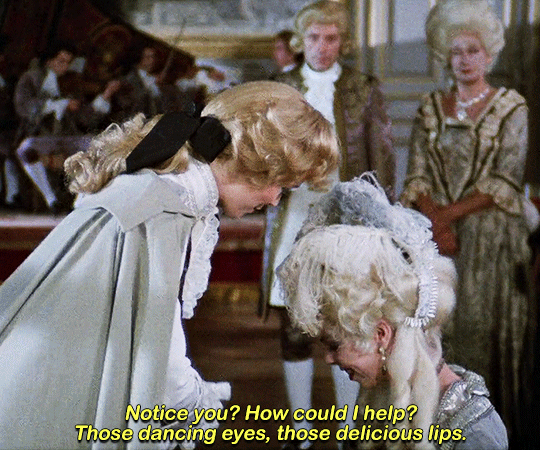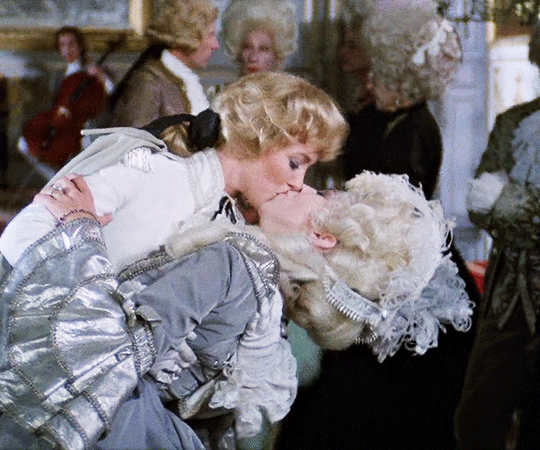Mathilde, 25, southern French. Your future local cellar rat (archivist).Chéché apologist. Admin of the Thermidorian studies group.Aedislumen is the Lazare to my Sophie. ♥Online archives account : @archviesaix-sna
Last active 60 minutes ago
Don't wanna be here? Send us removal request.
Note
Hello!
Here Fouché is often drawn having red hair and blue eyes. Are there any official sources on his physical appearance that confirm he really had these features?
Hello to you too! Thank you so much for this question and for giving me another opportunity to yap about my favourite man. ♥
Indeed, this description has become predominant and even inspired the most exquisite Fouché fanarts I know, starting with michel-feuilly's masterpieces, which are my personal favorites and deserve more visibility.
As for the historical sources, some people in the frevblr and napoblr pointed out the existence of this portrait (third image, with Carnot's) but no author or date is associated with it and as far as I know, it's nowhere to be found other than in this article, so I'd rather not state with certainty that Fouché is the one depicted here.
In fact, sources that describe Fouché as a redhead are… quite rare, actually.
First of all, there are Barras' Mémoires, and I believe it's here that this description of red hair was first noticed by the frev/napoleonic era fandom. It should be noted that they were published after his death, and we can't even be sure that it was actually him who even wrote them. And even if he did, we shouldn't necessarily trust everything he says, because, well… it's Barras. Anyway, when it comes to Fouché, he describes :

“[Fouché's] tiny red-rimmed eyes, which had given him for me the nickname of the Red Partridge, [which] were even redder, smaller and veiled than usual”
But he doesn't specify whether his eyes are blue or not. Further on, he mentions :

“[...] his ugly wife called the ‘virtuous woman’, her child red-haired and ugly like them”
The child to whom he refers here is not Nièvre, as I have read in some posts, but Evelina Fouché, his second daughter, born in January 1795 and deceased in July 1796, for Nièvre was no longer alive by the time of the Thermidorian Convention/early Directory, and it is at this point in his life that Fouché is described.
Of his many biographers, only Stefan Zweig describes him with “russet eyebrows”, and for many reasons, including his refusal to substantiate his biographies with a single damn source and his lack of mastery of the historical method, I don't give this author any credit.
And then… that's it. Or, well, I've found other physical descriptions of Fouché, but he appears more as… blondish?
For example, his biographer Emmanuel de Waresquiel pictures Fouché as follows: “He has a glabrous face half eaten with freckles, very pale, of a waxy and livid pallor, almost diaphanous, down to the hair of a bland blond, bleached as are those of albinos.” (Fouché, les silences de la pieuvre, Chapter 4: “Vous tremblez devant l'ombre d'un roi”)
Maxime du Camp, too young to have seen Fouché with his own eyes, describes him in the dusk of his life, in 1820 during his exile in Prague in Souvenirs d'un demi-siècle :

“Emaciated, wrapped in a blanket, with his yellow hair, his white eyebrows, his weak albino eyes, he looked like a ghost ready to disappear.”
Lastly, there's a description in the Mémoires of Mathieu Molé, who knew him during his lifetime and even met him at several occasions :

“His whole person reflects the passions that agitated his life; his height is tall, his limbs spindly, his fiber dry, his movements very swift, his physiognomy fiery, his features thin, his eyes scratched and piercing, his hair those of an albino; something fierce, elegant and agile makes him look like a panther”.
Then there's the problem of Fouché's pictorial representations. Most of those were probably not made during his lifetime. His two best-known paintings are currently part of the collections of the Versailles Castle (where they are not on display, much to my regret. And the curators refused to show them to me when I was begging on my knees. Rude people). The first, Claude Dubufe's painting of Fouché in 1809 dressed in his Duke of Otranto clothes, was allegedly commissioned by Fouché's children after his death, but we don't even know its date, and according to an article by the art historian Jérémie Benoît, it was painted by another artist, René Berthon, then recuperated and extensively retouched: “the whole background was repainted, hiding a drapery and some furniture”. Once again, I can't prove anything, even if it's true that this black background, as if something were hidden inside, gives this painting a rather strange mystery. We don't know either who painted this one, and for this one, we suspect the portraitist Marie-Thérèse de Noireterre, who even painted two representations of him.
Then there's my favorite of all: this engraving in Henri Buisson's biography of Fouché, which is said to have been made in 1798 and bears a striking resemblance to all the descriptions above, not to mention the fact that he looks like he has blond (or red!) hair :
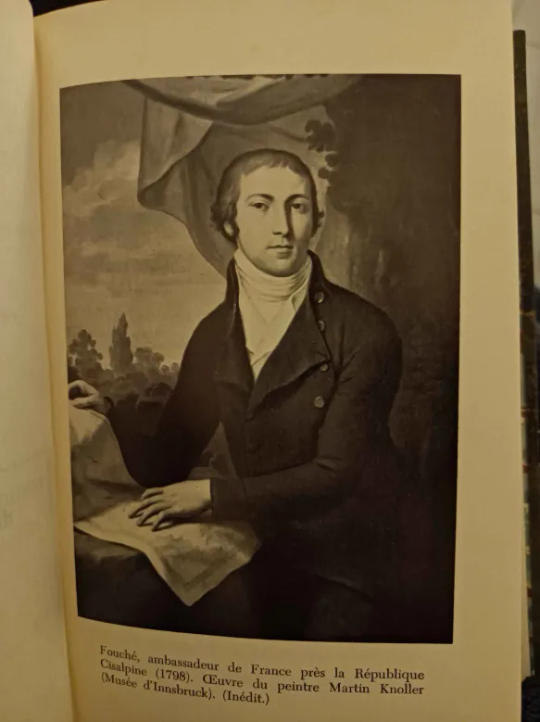
Aaaaand, that's all I know about it. In conclusion, I can't assert anything with certainty when it comes to Chéché's hair and eyes colour. I am sorry if this long answer is a disappointment. :(
But I can give you my theory : maybe Barras doesn't describe Fouché as a redhead because he has red hair, but for more philosophical, more symbolic reasons, linked to the way in which the figure of the redhead was represented in art, literature and overall the public imagination :
“Certainly, throughout the Middle Ages, to be ginger was still, as in Antiquity, to be cruel, bloody, ugly, inferior or ridiculous; but over time it became primarily to be false, cunning, a liar, a deceiver, disloyal, perfidious or a renegade. To the traitors and felons of literature and iconography, already mentioned, are added the discredited gingers of didactic works, encyclopedias, books on manners and, above all, proverbs.” (Michel Pastoureau, Une Histoire Symbolique du Moyen-Âge)
This vision of things was particularly true in ancient and medieval times, but it's not implausible to suppose that it continued to exist in people's thoughts as well as in art (Cabanel's 1847 painting The Fallen Angel depicts Lucifer with red hair).
But again, this is just one of my theories, and unfortunately I can't read Barras' mind to verify the veracity of my hypotheses.
Still, I think it would be interesting to discuss it together, and ask if any of you have found other physical descriptions of Fouché that would help us shed more light on this mystery!
15 notes
·
View notes
Photo
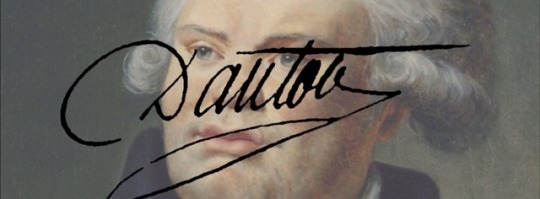
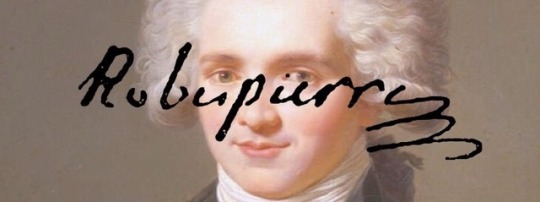
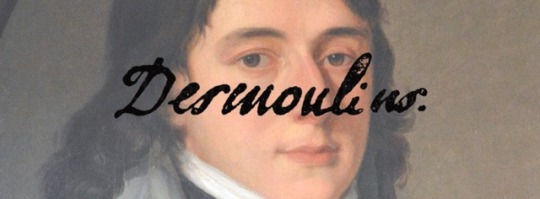
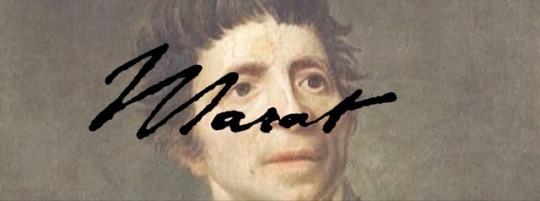
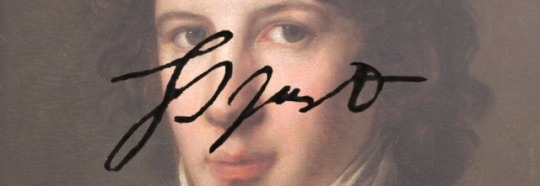
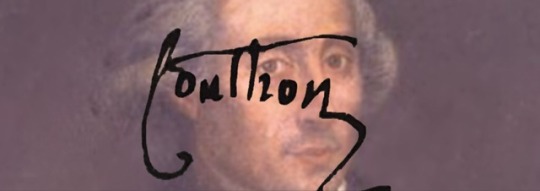
FRENCH REVOLUTIONARIES: Portraits / Signatures
818 notes
·
View notes
Text
Ma tendre amie, rien ne charmerait davantage que de revivre le plaisir unique de me retrouver en ta compagnie, la joie de nos conversations et de nos promenades en ville, la chaleur de ta main dans la mienne et la tendresse de tes baisers ♥

Moses Wight - "Ladies at Tea"
73 notes
·
View notes
Text
Every mention of Fouché and Carnot's relationship in Waresquiel's biography
In March 1793, Fouché found himself on the right side of the Revolution. He could aim for a new position. On the 9th, he spoke to an anonymous friend about the measures taken in Paris in application of the decree to raise 300,000 men passed by the Convention on February 24. “Paris is entirely up in arms. At every moment, numerous battalions are marching through the precincts of the Convention and to the frontiers.” “I'm writing to you in a hurry,” he adds, “I only have time to close this letter.” Indeed, he was just appointed by the Convention, on Carnot's report (Recueil des actes du Comité de salut public, avec la correspondance officielle des représentants en mission et le registre du conseil exécutif provisoire.,Tome 2, p. 298), as one of the 82 commissioners in charge of instigating and organizing the raising of volunteers in the départements.
Fouché meets both sides “separately”, he says. In his Mémoires, he boasts of having obtained from Carnot the dispatch to the armies of several sections of cannoneers commanded by Hanriot at the head of the Parisian army [on 9 thermidor]
During the First Consul's absence in May and June, there was no lack of secret conciliabula in Paris. Conversations certainly took place at Talleyrand's country house in Auteuil, with Sieyès and others. There must have been speculation about the measures to be taken in the event of Bonaparte's sudden death on the battlefield, and the choice of his successor. There was talk of Carnot, then Minister of War, and of La Fayette, who had just been spectacularly amnestied by the First Consul after a long revolutionary exile. It's likely that Fouché was aware of all this, but it's just as likely that he had no part in it, while silently preparing his own solutions. He hated Sieyès as much as Carnot, and was in the midst of a power struggle with Talleyrand, whom he distrusted more and more.
Fouché knows he is being watched. At the Ministry, he doesn't have a free hand. Napoleon is too wary. He circumvented Réal, whom he placed in the Prefecture of Police and who was ordered to report directly to him without telling anything to his boss. As head of the gendarmerie, Savary kept an eye on him. At the Ministry of the Interior, Carnot hated him and his relationship with him was “constantly painful”.
He must certainly have suspected the latter's contacts in Vienna, and said nothing until he had proof and the opportunity. His tantrums, as we know, are always more or less played out. For weeks now, he has regularly taken him to task in the middle of the Council. Carnot witnessed it: “You are betraying me, Monsieur le Duc d'Otrante. You are betraying me, I know it, I have the proof.” (Napoleon)
Before leaving, Napoleon thought of dismissing his troublesome Minister of Police, but gave up the idea. No doubt he still preferred to have him in his government rather than out of it, to keep a better eye on him. Carnot recounts the scene in his Mémoires: “The Duc d'Otrante betrayed me. I want to get rid of him. I'm even thinking of abolishing the Ministry of Police.” And the Minister of the Interior dissuaded him: it was possible a month ago, but, “on the eve of serious events”, Fouché's dismissal “would increase the already strong irresolution and distrust of public opinion”. We shall see later. By early June, the Minister of Police was so powerful that it had become almost impossible to get rid of him, and yet Carnot hated him.
By abdicating, Napoleon delegated his powers to his government, which was already disregarding his wishes. Fouché was confident enough of his own influence in the Chamber of Deputies to be certain of his election. And indeed, on the night of June 22/23, he was nominated by 293 votes. Even the Bonapartists, convinced that he was secretly defending the rights of Napoleon's son and negotiating with Metternich, voted for him. But he had not foreseen that he would be elected with Carnot, who was likely to embarrass him considerably, nor with General Grenier, a veteran of the Revolutionary and Imperial wars, both of whom were equally disinclined to maneuver and compromise.
On the 23rd, he found a way to get himself appointed by his colleagues to the presidency of the government, at the expense of Carnot, who had been better elected than him in the Chamber. Strong of his 324 votes and convinced that he would naturally have the presidency, Napoleon's former minister had been foolish enough to abstain, out of courtesy, he explained. The kind of courtesy that costs you dearly. The other three voted for Fouché. In a few days' time, Grenier will be talking about blowing up his brain, and Carnot will be publicly accusing him of betraying everyone.
The former Conventionnel was not convinced of the Allies' agreement in favor of Louis XVIII until the very last days of June, when Wellington was at Roye, north of Paris, with his army, and the Prussians were devastating everything in their path. But it was the Allies who held the die and the cards for the country's future. Only then would he seek to “take advantage of the inevitable”, as he told Carnot.
As early as June 23, Fouché had the main conspirators in the suburbs arrested for attempting to seize army arms depots by force. On June 28, against Carnot's advice, he opposed the mass mobilization of the capital's inhabitants and refused to allow them to bear arms. He wanted to avoid any form of disorder at all costs.
One cannot continually make dupes of all parties without exposing oneself a little. During these acrobatic days of late June, there will be insults and threats. Carnot was the first to publicly accuse the President of France's provisional government of treason, in the middle of the Council and on several occasions (Mémoires historiques et militaires sur Carnot, p.184). He was accused of sending emissaries to the King, Talleyrand and the Duke of Wellington on an almost daily basis, of “trafficking in the blood and liberty of the French”, as Defermon, a former minister of Napoleon, put it.
He led Carnot and his “friends” in the provisional government to believe that the Neuilly reunion could be advantageous “for the common interest”. The common interest was soon reduced to the one of Fouché alone. At Neuilly, discussions went on until four o'clock in the morning, and everyone agreed to blame the absentees, the Carnots and other Conventionists in the Chamber. Everyone played their cards close together, recited their scores for the sake of history, and kept quiet about the one thing that was obviously on everyone's mind: the former regicide's entry into the King's newly-formed ministry.
The curtain fell at the provisional commission in the Tuileries, as if the whole play had been a bad farce. Carnot was furious. He knew he had been definitively played by his former colleague at the Convention. The two revolutionaries, the organizer of the victory and the machine-gunner of Lyon, would then have exchanged sweet words: Where do you want me to go, traitor? asks Carnot. - Wherever you want, imbecile! replies Fouché. The dialogue is almost too good to be true.
In his Mémoires, Talleyrand was the first to blame his accomplice for the July 24 ordinance, calling it a “clumsy and foolish act”. While among the high society, the lame prince is credited with admirable words that exonerate him all the more. “There are a lot of innocent people on your list”, he is said to have jokingly told the former regicide, while leading an “uphill struggle” with him to reduce the number. This would have reduced the list from 100, or even 300 names according to Barante, to 57. Everyone later boasted of having saved their friends: Decazes, Montalivet and Benjamin Constant; Talleyrand, Caulaincourt and General de Flahaut, the natural son of the former bishop of Autun. As for Fouché, he would have been delighted to include his personal enemies, in particular Savary and the “imbecile” Carnot.
In Frankfurt, Félix Desportes wrote letter after letter to his friends, expressing his displeasure with the King's former minister. In Warsaw, Carnot declined Thibaudeau's invitation to come and live in Prague, to avoid meeting Fouché. The “imbecile” and the “traitor” will never speak again.
14 notes
·
View notes
Text

Livre de la Vigne nostre Seigneur; France, 15th century; Bodleian Library, MS. Douce 134, f. 49v
14K notes
·
View notes
Text
How to request a document reproduction on the French National Archives website (without paying anything)?
Setting the scene: I'd like to obtain a digital version of this file, because online, only a brief unhelpful description is shown and the visual is not available.
If you don't know how to navigate through the website to get to the archive you want, I've explained in this post how to search for a specific item in the French National Archives' virtual reading room. You really should read it before this post, because there are many details I won't go into again.
You're ready? Okay, let's get into it.
Once again, you don't go to the official website, but to the virtual reading room. This is systematically the place to go to search for documents and leaf through inventories. You can access it here.

In real life, if you go to the Paris or Saint-Denis sites and ask to consult the archives, you'll be required to register by filling in a form with your information (not much personal details, they often just want to know if you're here for personal stuff like genealogy, or if you're studying documents for university-related works), and you'll be given a card.
Here, online, it's basically the same thing. You'll need to create an account. Don't worry, it's completely free. Be careful to go to the Espace personnel" (personal account) and not the "Accès sécurisé" (secured access).

Once you have clicked, the website will inform you that creating an account will give you access to the following options:
Order or reserve a document
Request document reproductions
Request search assistance
Save your search results
So really, I insist, this is a step you shouldn't neglect. And of course, this also works if you live in a different country!
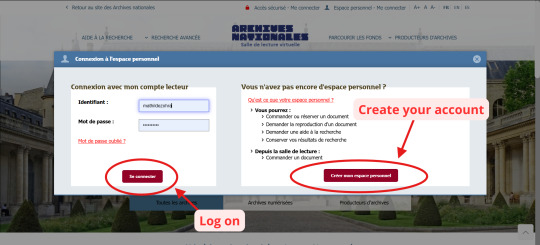
Okay now, let's get back to our document.
I'm not going to explain a second time what a class mark is and how to find it, once again I refer you to my other post which explains everything in detail. Just know that the item that interests me has F/7/6712 as its class mark.
There's a lot of information. Just know that the first thing to do is to set aside your document in what we call the “panier” (the cart). Yep, the shopping cart, just as if you were buying clothes on a website. There is also an option to “reserve” the document, but this implies that the archivists will put aside the physical version of the document and wait for you to come and consult it directly in Paris or Saint-Denis. Yeah, no. Let's save ourselves a shit ton of money, all of us are way too poor for this.

This is what the cart looks like (image below ↓). This is where you will store all the class marks that interest you, but which you can't or don't want to have reproduced immediately, so you can easily find them later. As you can see, I've already put aside a few. You need to look at the access conditions right away to check whether you can make your request or not. If you look carefully, you'll see that some of the Carnot family archives I wanted to obtain are blocked because they're in such poor condition that the archivists don't want to risk damaging them further by scanning or even opening them.
However, for the document I want to get today (the last one on the list), there's nothing written in this section, which means that everything is fine and I can proceed.
So we click on "Demander une reproduction" (ask for a reproduction) :

In this space, you need to be as specific as possible about what you want. For example, if the class mark is linked to a file with... let's say 600 items (and this often happens), you specify that you only need the documents associated with the numbers 4, 96 and 546, so that the archivist doesn't have to scan 600 documents one by one for nothing and cry all day.

Then here, you specify why you want this document and what you're going to use it for (for me, this will be personal and private use because this specific research of mine isn't related to work or university, but you can see the “professional use” option also exists).

And this is where you need to listen to me very carefully, because in the price list for document reproductions, there's only one free option, and that's the jpeg or pdf scan. Trust me, I systematically ask for this option, and the scans are always of excellent quality. Currently I got +1000 Fouché-related documents without paying anything and without needing to move from my couch.
Of course, the prices aren't exponential, in fact they're quite reasonable (for example, if you want a paper photocopy sent by regular mail, it'll cost you between 15 and 30 eurocents. That's fine for a single sheet, but if, like me, you need files with more than 300 pages, it quickly becomes a problem).
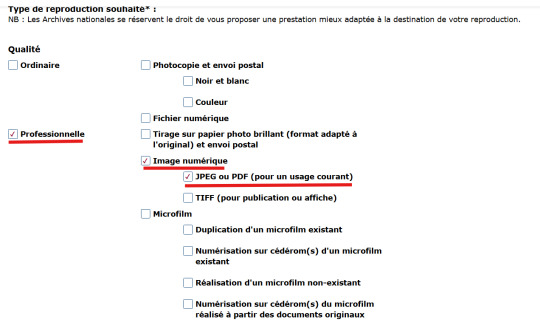
And finally, you submit your request and you wait for 3 to 6 months.
They will most likely send you an email with a password-protected link they'll give you, to a site where you can send very large files (they often use WeTransfer), and you'll have a limited time to open it so be careful to use an email adress you check regularly when you create your account.
And you have your document. Good job <3
83 notes
·
View notes
Text
I thought about this before.
And then I was like "nah, a ball would be too Ancien Régime or Empire-coded, we need to reunite in the Assemblée Nationale for a political session or in the Champ de Mars to celebrate one of the Sanculotides"
what if all of frevblr kind of organized a french revolution themed ball. would that be absolutely perfect or what.
25 notes
·
View notes
Text
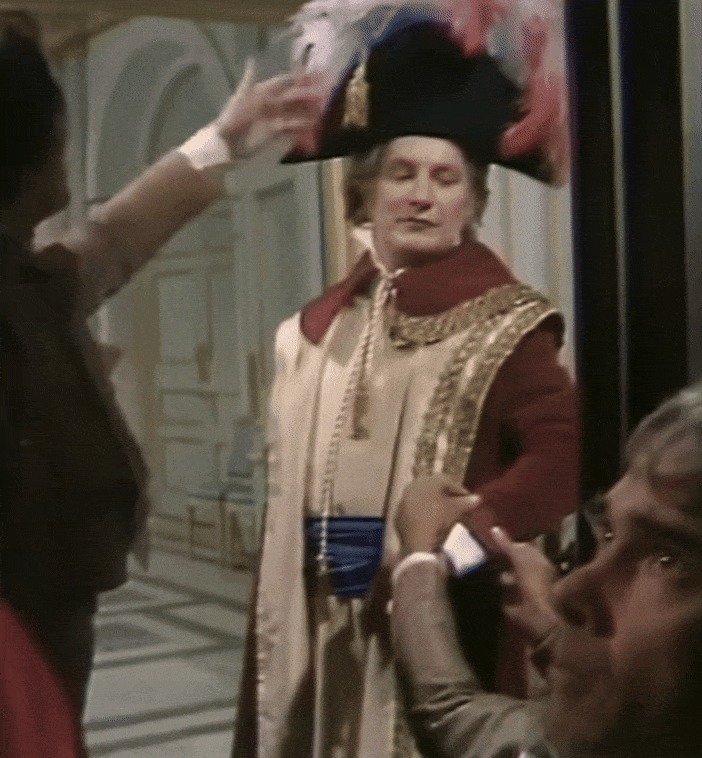

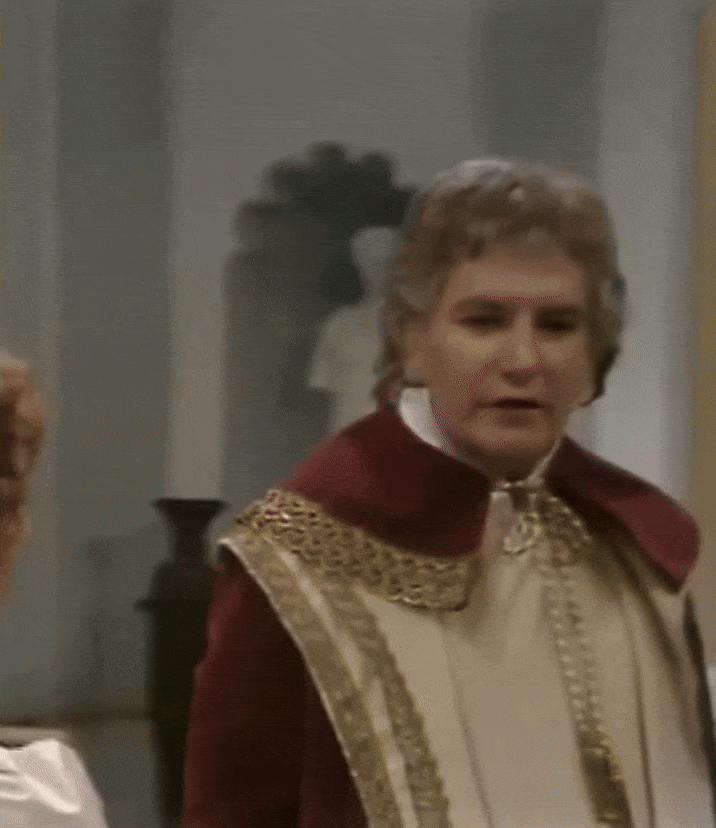

cunty Paul Barras in his directory outfit in Napoleon and Love (1974) ❤️✨ for @aedislumen
83 notes
·
View notes
Text

baby jesus being bathed and fed by an angel
from an illustrated manuscript of stephan fridolin's der geistliche mai. munich, 1529
source: Munich, BSB, Cgm 4473, fol. 206r
217 notes
·
View notes
Text



bonbonparte + junot sneak
#🫷 removing the “friendship” tag until pride month is over#frev#napoleon bonaparte#augustin robespierre#bonbonparte#jean andoche junot#another labrador44 absolute banger
215 notes
·
View notes
Text
THAT TREND but it's Désirée Clary & Bernadotte propaganda
With a Napoléon cameo
33 notes
·
View notes
Text
Based on the universal streaming platforms experience, they :
won't finish the damn plotlines
imply there will be a second season
cancel the second season
Today the last episode of Carême will be broadcast and I'm sad. I wanted the show to last more!
I wonder what we'll see: will Talleyrand tell Carême the truth about his real father? Will the two reconcile with each other? And if the reconciliation doesn't happen, who will Carême choose to poison between Fouché and Talleyrand?
Too many questions!
17 notes
·
View notes
Text


Talleyrand and Fouche from the movie “le souper”
11 notes
·
View notes
Text
Murat not winning after wearing that literal musketeer outfit is CRIMINAL
Fine. Maybe I need to update it.
170 notes
·
View notes
Text
i'm feeling controversial today so here's another hot take. and before you type away at your keyboards, know that this is all coming from a south asian.
white leftists have got to stop acting like christianity is the only religion that deserves to be criticized and you cannot touch any other religion because that'd be racist and bigoted. because as an indian who's watching my country progress towards hindu nationalism, this attitude doesn't help at all.
white people see hinduism as this exotic brown religion that's so much more progressive but don't know the violence of the caste system, how it others a large portion of the population on the basis of caste, literally branding them as "untouchables". they teach us in school that this problem is a thing of the past but the caste system is still alive and shows itself in violent ways. and that's not even covering how non hindus are treated in the country. muslims especially are being killed, have their houses bulldozed, businesses destroyed, and are being denied housing, our fucking prime minister called them infiltrators and there's this fear among hindu extremists that they'll outnumber the hindus in the country. portraying hinduism as this exotic religion does a disservice to all those oppressed by the hindutva ideology
similarly, white people see buddhism as this hippie religion that's all about peace but have no idea how extremist buddhists in myanmar have been persecuting the rohingya muslims for years and drive them out of the country.
if anything portraying these religions as exotic hippie brown religions is a type of orientalism itself.
and also y'all have got to realize that just because christianity has institutional power in america doesn't mean there aren't parts of the world where they are persecuted on the basis of religion. yes karen from florida who cries christophobia because she sees rainbow sprinkles on a cake is stupid but christian oppression DOES exist in non western countries where they're a minority. pakistani christians get lynched almost on a daily basis over blasphemy accusations. just look up the case of asia bibi, a pakistani christian woman who was sentenced to death on blasphemy charges because of something she said when she was being denied water because it was "forbidden" for a christian and a muslim to drink from the same utensil and she'd made it unclean just by touching it (which is ALSO rooted in casteism and part of pakistani christians' oppression also comes from the fact that a lot of them are dalit but that's a whole other discussion). and that's just one christian group, this isn't even going into what copts, assyrians, armenians etc have faced and continue to face. saying that christians everywhere are privileged because of american christianity actually harms christian minorites in non western countries.
and one last thing because this post is getting too long: someone being anti america doesn't automatically mean they're the good guys. too many times i've been seeing westerners on twitter dot com praise the fucking taliban just because they hate america. yes, the same taliban who banned education for women, thinks women should be imprisomed at home, and consistently oppresses religious and ethnic minorities in afghanistan. yes, america's war on afghanistan was bad and they SHOULD be called out for their war crimes there. no, the taliban are still not the good guys. BOTH of them are bad. you cannot pretend to care about muslims and brown people if you praise the taliban. because guess what? most of their victims are BROWN MUSLIM WOMEN. but of course white libs who praise them don't rub their two braincells together to make that conclusion.
this post has gotten too long and i've just been rambling so the point of this post is: white "leftists" whose politics are primarily america centric should stop acting like criticism of ideologies like hindutva, buddhist extremism, and islamic extremism BY people affected by these ideologies is the same as racism or religious intolerance because that helps literally no one except the extremist bigots. also america is not the centre of the world, just because something isn't happening in america doesn't mean it isn't happening elsewhere
5K notes
·
View notes
Text
whats a stereotype for your country that you absolutely do. mine is that i unironically go "eh" and apologize a lot and i often drink maple syrup straight
43K notes
·
View notes



